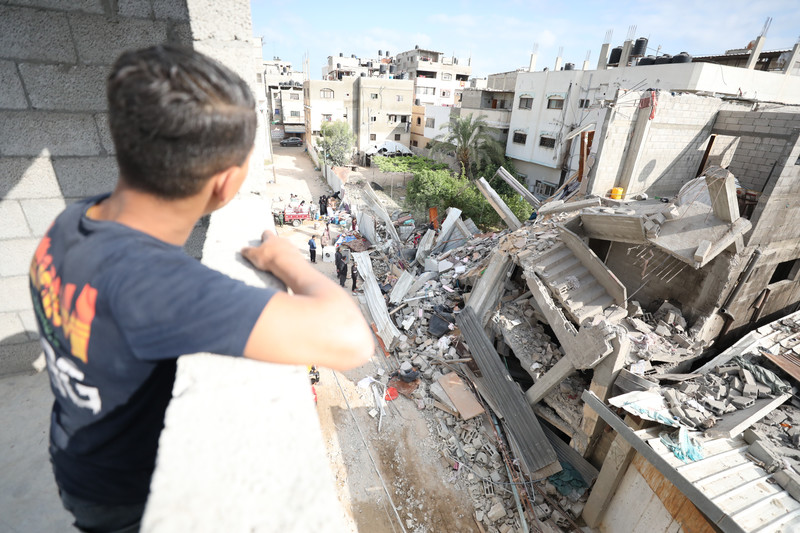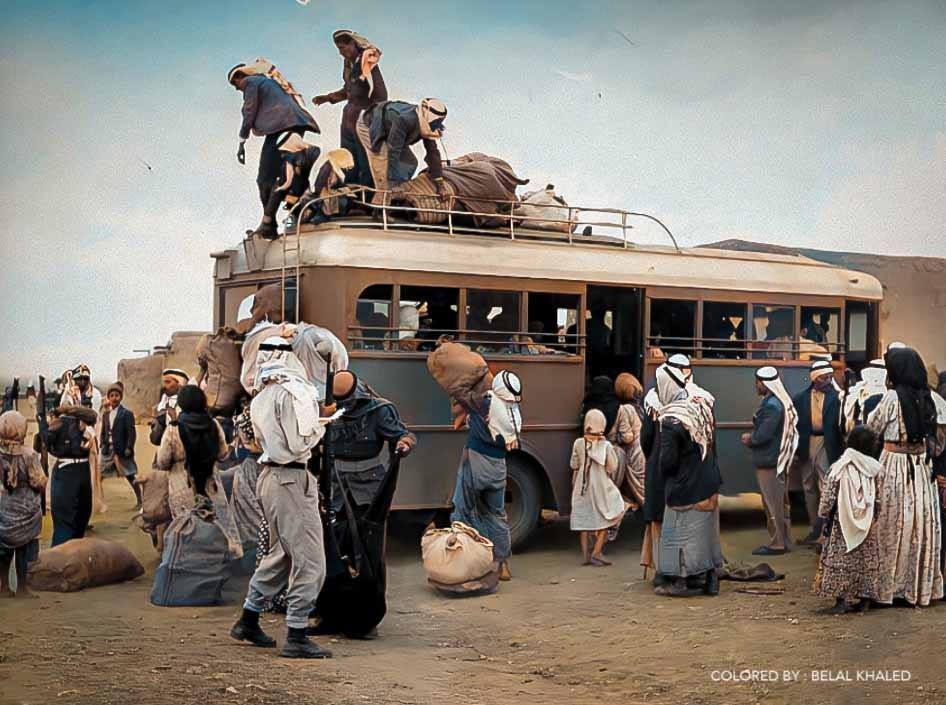Life in Gaza can change in the blink of an eye, like a key turning in a lock.
Just last week, I was excited about my university quiz, an upcoming performance on stage, and the photography course I teach to a group of children.
Then, the key turns, and I wake up with just one burning question: will I survive?
Tuesday morning, the first day of Israel’s assault, my father shook me and my younger brother awake.
“We need to move the goods from our shop to a safer location,” he said, keen to salvage the clothes he sells from his store in al-Shujaiya.
I couldn’t help feeling skeptical. What new location would be any safer? It would have the same sky that the warplanes fly in, the same sky that brings death and destruction to our city. No place or time makes us feel safer in war.
“Let’s move,” my dad insisted while helping me up.
In the car, I saw the usual war scenery. The streets were crowded with people rushing to buy supplies for the week. Bakeries were crowded. The smell of stress and war hung thick in the air, and I couldn’t escape the constant drone of the news channel reporter’s voice in the background.
I despise that voice, a constant reminder of the destruction and terror that surrounds us.
With each passing moment my heart raced faster. Each tall building we drove by could be struck and fall on the car. I kept imagining a missile striking us. In the blink of an eye, we would never see our mother again. Our bodies would be stiff and black, an ugly way to die. The terrifying things I had seen in previous wars and on social media haunted me all the way to the shop.
But terror gave way to profound disappointment and frustration when we drove past my university. The talent show that we had been eagerly preparing for had been snatched away from us by the cruel hands of Israel. I was no longer filled with thrill and delight.
I had been so eagerly anticipating showing off my talent to a big audience. I had been practicing my singing for a month. I even composed the music for a poem written by my professor that I was going to perform.
Picking up the pieces again
Thankfully, we arrived at the shop unscathed. Our shop, which is a clothing shop, is located in al-Shujaiya, a place that still echoes with the screams of the 2014 massacre. Our goal was to move the clothes from our shop to another “safer” one, a three-minute walk away.
We worked tirelessly for three hours. I kept an eye on my younger brother, afraid that we would be separated. I prayed over each step we took, hoping that we would be safe. The minutes felt long, but, even though we were exhausted under the burning sun, we persisted.
I know it’s dangerous to do a job like this in war, and so does my dad. But the shop is all we have. Without it, we can’t eat, dress, go to college, or live. It feeds three families, including my two older brothers’ families. We had no choice.
As I worked, my mind wandered. I thought of the children – a group ranging from preteens to 14 – who had taken the first session of my photography course, their beaming faces looking up at me. I hoped they were safe in this chaos. The thought struck me that if the course was canceled due to this infernal war, it would mean the end of my only chance to earn some money toward my university.
Finally, we managed to move everything.
My father barely spoke. His eyes were pale and his hands were shaking.
“What is it?” I asked, frustrated, “We just moved everything. You should be relieved.”
“You don’t understand,” he said with a strained voice. “I have two years of accumulated rent to pay. I have a court hearing soon to discuss closing the shop. And I’ve been waiting for the spring and summer seasons to save some money. But now, what am I going to do? How are we going to live?”
He broke my heart. No son likes to see his father despairing.
“This will end soon, Yaba. It will end soon, inshallah,” I said, echoing the words my mother would say to me when I was a child.
My father took a deep breath. We both knew that wars don’t work like that. They don’t just start and end. There are days of mourning followed by weeks and months of trying to move on. Wars, however common they’ve become for us, affect us both psychologically and economically.
I looked around at the destruction, much of it from previous wars, still not rebuilt. It has become a permanent fixture in our lives.
And now, yet again, we are going to have to pick up the pieces of our shattered lives and try to put them back together as we mourn the loss of our loved ones and the destruction of our city.
Mahmoud Alyazji is a writer, photographer and video editor based in Gaza.
Shortlink for this post: https://daysofpalestine.ps/?p=41308






